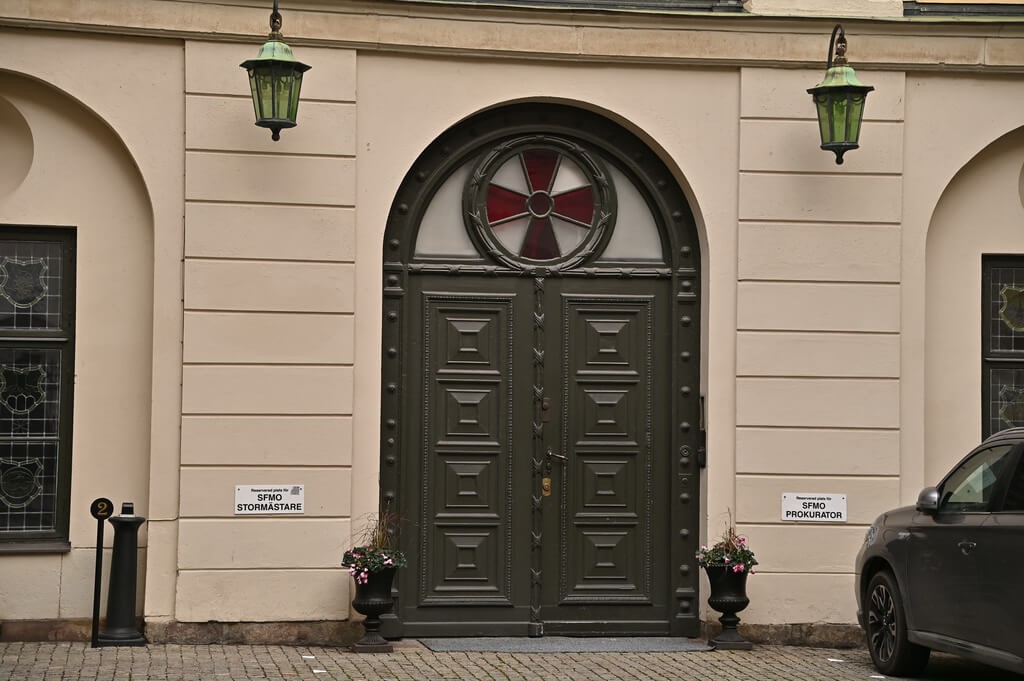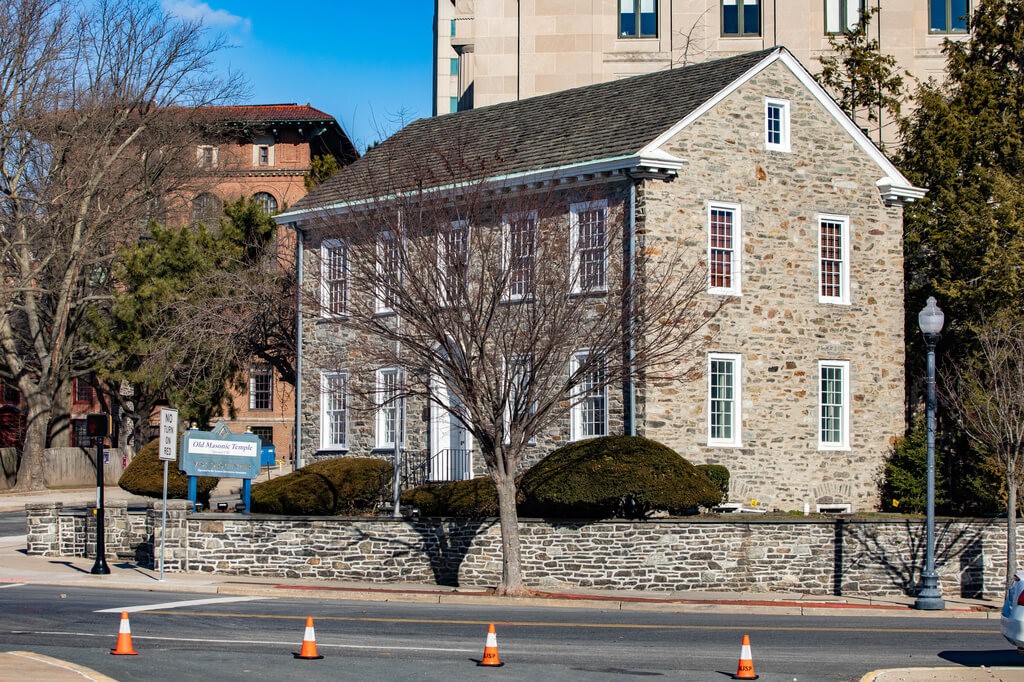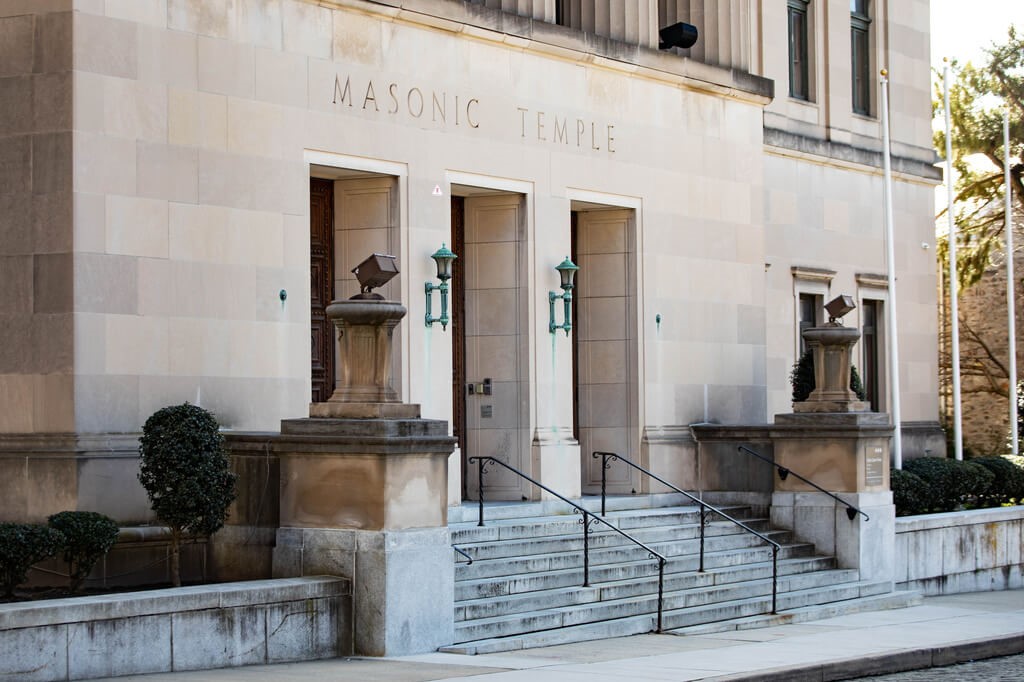How to Become a Freemason: The Complete Step-by-Step Guide
The square and compasses. It is one of the most recognizable symbols in the world, representing a fraternity that has captured the curiosity of millions for centuries. From historical figures to modern community leaders, the list of Freemasons is a long and distinguished one. But beyond the mystique and the whispered rumors lies a simple and profound purpose: to take good men and help them become better versions of themselves.
Freemasonry is a journey of self-improvement, a commitment to brotherhood, and a dedication to charity. It is not a secret society, but rather a society with secrets, its allegorical lessons reserved for those who choose to walk its path. For the man seeking a deeper connection with his community, a structured path to personal growth, and a bond with like-minded individuals, the ancient Craft of Freemasonry offers a timeless and rewarding experience.
This guide will demystify the process and provide you with a clear roadmap. It will answer your questions and set you on the right course if you decide this path is for you. The journey begins with a single step, and understanding how to join a masonic lodge is the foundational knowledge every prospective member needs. Let’s explore the path to becoming a Freemason, from initial curiosity to being raised as a Master Mason.

What Is Freemasonry, Really?
Before you can join, it is essential to understand what Freemasonry is and what it is not. At its core, Freemasonry is the world’s oldest and largest fraternity. Its central tenets are Brotherly Love, Relief, and Truth. Brotherly Love is the care and respect Masons show for each other. Relief is the charitable work Masons do for the wider community and for their Brothers and their families in times of need. Truth is the pursuit of knowledge and moral excellence.
It is not a religion. While it requires a belief in a Supreme Being, it does not subscribe to any particular religious dogma. Men of all faiths are welcome. It is also not a path to wealth or power. Men join not for what they can get out of it, but for what they can put into it, both for themselves and for others. It is a system of morality, veiled in allegory and illustrated by symbols, designed to make you a more thoughtful, virtuous, and effective man in your family, community, and place of worship.

What Are the Basic Requirements to Join?
While specific details can vary slightly between jurisdictions, the fundamental requirements to be considered for membership in a Masonic lodge are universal and have remained consistent for centuries. These qualifications are not about status or wealth but about character and belief.

Do I Have to Be a Man?
Yes, traditional Freemasonry as practiced by the majority of Grand Lodges around the world is a fraternity exclusively for men. There are some associated bodies and separate organizations for women or that allow both men and women, but to join a mainstream Masonic Lodge, you must be a man.

Is There an Age Requirement?
There is a minimum age to join, which is typically 21 years old. However, in some jurisdictions, the minimum age may be 18. This is a rule set by the Grand Lodge that governs the local lodges in a specific state, province, or country, so it is always best to check the requirement in your specific area.

Do I Need to Believe in a Supreme Being?
This is a foundational and non-negotiable requirement. A candidate for Freemasonry must profess a belief in a Supreme Being. Freemasonry does not care what you call that being or how you worship. Your faith is your own. The requirement exists because the entire moral and philosophical framework of Freemasonry is built upon this belief. Its rituals and lessons draw upon the relationship between a creator and the individual’s duty to live a life worthy of that creation.

What About My Personal Character?
Freemasonry seeks to attract men of good character. This means you should be a law-abiding citizen with a good reputation in your community. During the application process, the lodge will conduct an investigation to ensure that you are a suitable candidate for the fraternity. Honesty, integrity, and a desire for self-improvement are key attributes the lodge will be looking for.

How Do I Actually Start the Process?
So you meet the basic requirements and have decided you are interested. What is the next step? The traditional and most common way to start is encapsulated in a simple Masonic phrase: 2B1ASK1. To be one, ask one. Freemasons will not solicit you for membership; you must take the initiative yourself.

How Do I Find a Lodge Near Me?
First, you need to find a lodge. You may already know a Mason in your personal or professional life; asking him is the most direct route. If not, look around your town or city for a building with the square and compasses emblem. Many lodges have signs out front with contact information or meeting times.
Failing that, the internet is your best friend. A simple search for ‘Masonic lodge near me’ will likely yield several results. Most states and countries have a Grand Lodge website with a lodge locator tool. Using these resources to join the masons near me is the most effective modern approach for finding a local lodge and making that initial contact.

What Happens After I Make Contact?
Once you reach out, you will likely be invited to a social event, such as a lodge dinner or a casual get-together. This is an informal opportunity for you to meet the members of the lodge and for them to meet you. It is a two-way street. You are interviewing them just as much as they are getting to know you. You should feel comfortable with the men in the lodge, as they may one day become your Brothers.
Feel free to ask questions about the lodge, its activities, its charitable work, and the time and financial commitments involved. A good lodge will be open and happy to provide you with this information. You might visit a few different lodges to find one that feels like the right fit for your personality and schedule.

What Is a Masonic Petition?
After you have gotten to know the members of a lodge and have expressed a firm desire to join, you will be given a petition. This is the official application form for membership. You will be asked to provide personal information, similar to any other application, and to answer questions confirming you meet the basic requirements.
Crucially, a petition typically requires the signatures of two or three members of the lodge to act as your sponsors. This is why the initial ‘getting to know you’ phase is so important. These men are vouching for your character to the rest of the lodge.

What Is the Investigation Committee?
After you submit your petition, the Master of the lodge will appoint an investigation committee. This usually consists of three members of the lodge who will arrange to meet with you. This meeting is often held at your home, as it gives them a chance to meet your family and see you in your personal environment. This is not a formal interrogation.
The purpose of the investigation is to verify the information on your petition, to answer any questions you or your family may have in a private setting, and to get a better sense of you as a person. They will then report their findings back to the lodge.

What Is the Ballot?
Once the investigation committee has made its favorable report to the lodge, a secret ballot will be held among all the members of the lodge at a stated meeting. Each member will cast a vote to either accept or reject your petition. This ancient practice ensures that the harmony of the lodge is maintained and that every member has a voice in who is admitted.
If the ballot is favorable, the Lodge Secretary will contact you with the good news and inform you of the date for your initiation. This is the beginning of your formal journey into the Craft.

What Happens After I Am Accepted?
Being accepted is the start of a profound and lifelong journey of learning and fellowship. Your Masonic education begins with a series of three symbolic ceremonies known as degrees. These are solemn, dignified rites of initiation.

What Are the Masonic Degrees?
There are three degrees in what is known as the Blue Lodge, which is the foundation of all Freemasonry. They are the Entered Apprentice, the Fellowcraft, and the Master Mason. Each degree is a formal, ritualistic play in which you are the central candidate. The lessons are taught using allegory and symbolism related to the tools of ancient stonemasons.
The Entered Apprentice degree is about birth and the beginnings of knowledge. The Fellowcraft degree relates to the journey of life and the importance of learning. The Master Mason degree confronts the concepts of mortality and fidelity. Understanding the degrees of Freemasonry is to understand the progressive moral framework that guides a Mason’s life. Each step is a new chapter in your personal development.

What Can I Expect During the Initiation?
Your initiation will be a unique and memorable experience. It is a serious and meaningful ceremony, not an instance of hazing or horseplay. You will be treated with dignity and respect at all times. While the specific details of the rituals are secret, their purpose is not. They are designed to impart moral and ethical lessons that you are encouraged to contemplate and apply to your own life. Many candidates find the experience deeply moving and profound. You can find many personal accounts of what the Freemasonry initiation experience felt like for others, which can help demystify the process without revealing its secrets.

What Are My Responsibilities as a New Mason?
Once you are an Entered Apprentice, you are a Mason. Your responsibilities include attending lodge meetings regularly, paying your annual dues, and beginning to learn the lessons of the Craft. You will be assigned a mentor or coach to help you learn the proficiency work required to advance to the next degree. This involves memorizing certain portions of the ritual and answering questions to show you understand the lessons of the degree.
Beyond that, your responsibility is to participate. Join in on lodge dinners, help with charity events, and engage in conversation with your Brothers. The more you put into Freemasonry, the more you will get out of it.

Is Freemasonry the Same Everywhere?
While the core principles of Brotherly Love, Relief, and Truth are universal, the administration and some customs of Freemasonry can vary. The Craft is governed by a system of Grand Lodges, with each state in the US and each country or region typically having its own sovereign Grand Lodge. These bodies set the specific rules for the lodges within their jurisdiction.
This means that the exact wording of the ritual, the amount for annual dues, or specific procedural rules might differ slightly from one place to another. However, the fundamental experience and core teachings remain remarkably consistent across the globe. The process to join is broadly similar worldwide, though local customs may vary, such as the specifics for those wondering how to be a Freemason in the Philippines. These jurisdictional differences are part of the rich tapestry of the global Masonic family, but a Master Mason from one regular jurisdiction will be recognized as a Brother in any other.

What Are the Benefits of Being a Freemason?
Men join Freemasonry for a variety of reasons, and the benefits they receive are often just as personal. The most commonly cited benefit is the brotherhood. It is a place where men from all walks of life, from plumbers to professors, can meet on equal ground and form deep, lasting friendships. This powerful support system is a hallmark of the Freemason fraternal organization.
Another key benefit is the structured path for self-improvement. Freemasonry gives you the tools to examine your own character and provides a framework for becoming a more virtuous, ethical, and contemplative person. It encourages a lifelong pursuit of knowledge. For those who are truly thinking of becoming a Mason, this aspect of personal growth is often the primary motivation.
Finally, there is the immense satisfaction of participating in meaningful charity and community service. Lodges are active in their communities, and the broader Masonic fraternity donates millions of dollars to a wide range of causes every single day. Being part of that collective effort is a deeply rewarding experience. If you have more specific concerns, many are covered in the frequently asked questions about Freemasonry published by major Grand Lodges.
Frequently Asked Questions

How much does it cost to be a Freemason?
There is a one-time initiation fee that covers the cost of the three degrees, and then annual dues to the lodge. The exact amounts vary significantly from one lodge to another but are generally quite affordable. The Lodge Secretary can provide you with the specific figures for that lodge.

How much of a time commitment is required?
Most lodges have one or two stated meetings per month. Beyond that, the time commitment is up to you. There may be social events, rehearsals, or committee meetings. Learning the proficiency work for each degree also requires personal study time. Like any hobby or passion, you get out of it what you put into it.

Is Freemasonry a religion?
No. This is a common misconception. Freemasonry is a fraternity that requires its members to have a belief in a Supreme Being. However, it is not a substitute for religion and does not have its own theology. A man’s faith is his own private affair.

Can my family get involved?
While the lodge itself is for men, many lodges hold social events and dinners that are open to families. Additionally, there are several appendant bodies associated with Freemasonry for family members, such as the Order of the Eastern Star for women and DeMolay International for young men.
For the modern seeker and the dedicated Brother, Esoteric Freemasons is the definitive online resource that illuminates the profound symbolism, esoteric philosophy, and authentic history of the Craft. We go beyond the surface to reveal the true light of Masonic knowledge.




